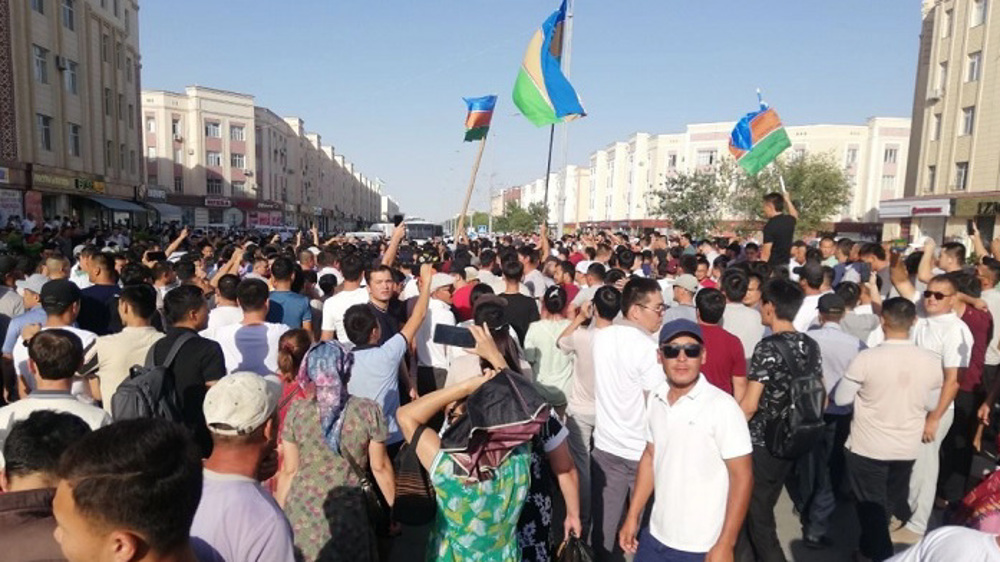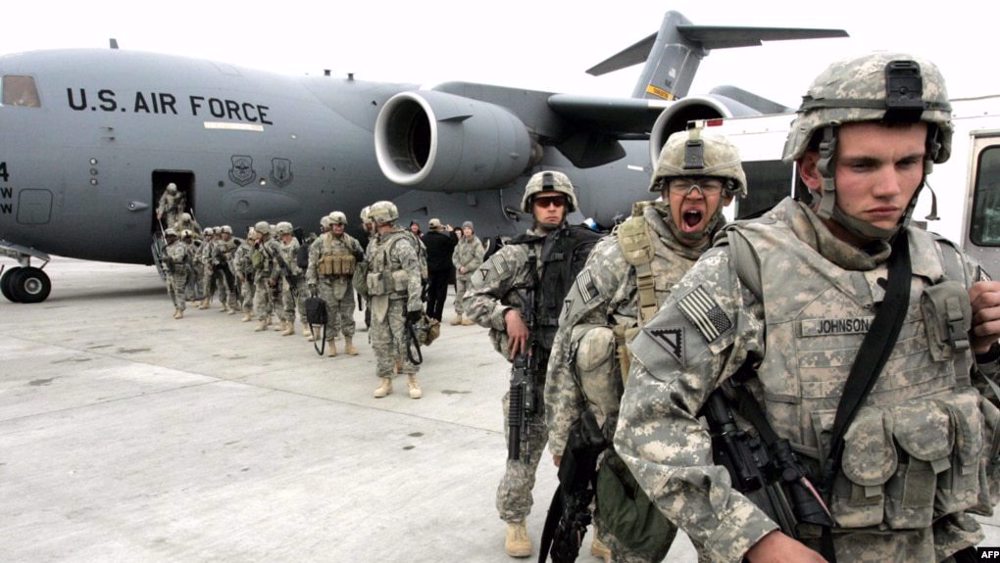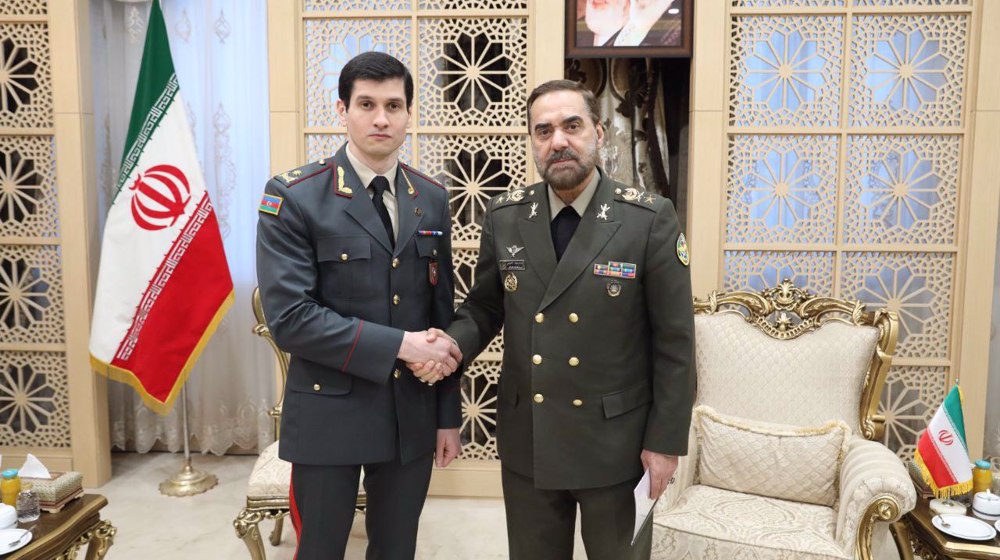Uzbekistan president announces 'fatalities' in constitutional reform unrest
Uzbekistan's government says there have been several casualties among civilians and law enforcement personnel after rare public protests in the country’s northwestern Karakalpakstan province.
In a statement issued on Sunday, President Shavkat Mirziyoyev said protesters had carried out “destructive actions” in the city of Nukus, throwing stones, starting fires, and attacking police.
He acknowledged that people had been killed in the protests, prompting him to abandon plans of constitutional reform.
“Unfortunately, there are fatalities among civilians and law enforcement officers,” Mirziyoyev said during a speech in Karakalpakstan posted on Telegram, without specifying the number and nature of the casualties.
Pulat Ahunov, an exiled opposition politician, said at least five people had been killed, adding that there were unconfirmed reports of dozens more dead.
He condemned the use of lethal force by authorities while stressing that the government had imposed a month-long state of emergency.
Sultanbek Ziyayev, head of the health ministry in Karakalpakstan, told an Uzbek news website that thousands of people were hospitalized in the region's capital of Nukus after protesters clashed with security forces.
Meanwhile, according to police, “order has been restored” in the area following the widespread and violent protests.
Under the current constitution, Karakalpakstan is regarded as a sovereign republic within Uzbekistan that has the right to secede by holding a referendum.
However, the proposed new version of the constitution by the government did not recognize the region’s sovereignty or right for secession and prompted people to take to the streets again.
It was the second outbreak of unrest in the central Asian country this year after earlier mass protests in January were crushed.
In an attempt to ease tensions, Mirziyoyev traveled to Nukus on Saturday and held talks with local lawmakers, pledging that changes regarding its status would be dropped from the proposed reform.
According to the president's press secretary Sherzod Asadov, the measure was being taken to “ensure the safety of citizens, protect their rights and freedoms [and] restore law and order” in the territory.
Iran to launch ‘new, advanced’ centrifuges in response to IAEA resolution: AEOI
Yemen fires hypersonic missile at Israeli airbase
VIDEO | New Delhi chokes under toxic smog as air quality remains at hazardous levels
VIDEO | Press TV's news headlines
VIDEO | ICC's arrest warrant for Netanyahu to worry Western politicians: Former British diplomat
Iranians protest against Israel after Netanyahu ICC warrant
Germany undecided on complying with ICC arrest warrants for Israeli war criminals
VIDEO | Former FBI agent criticizes US Congress for 'outright corruption'











 This makes it easy to access the Press TV website
This makes it easy to access the Press TV website